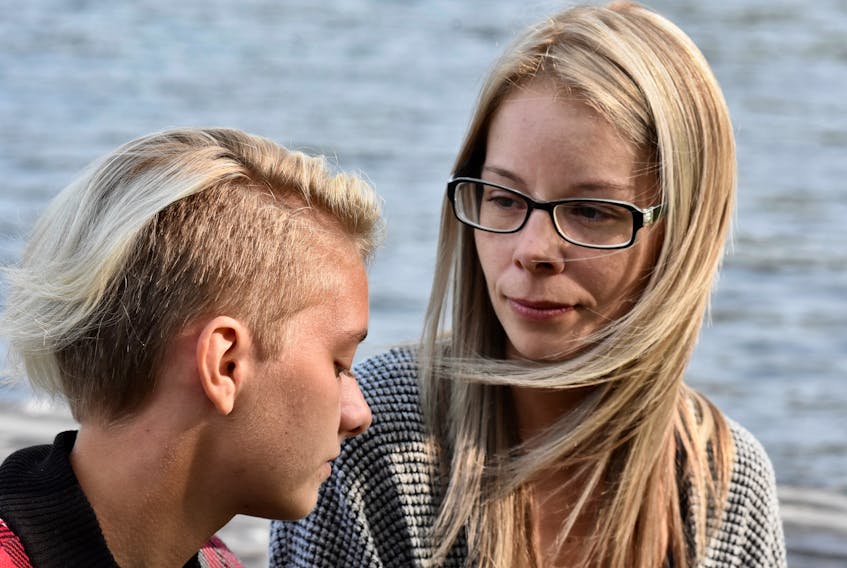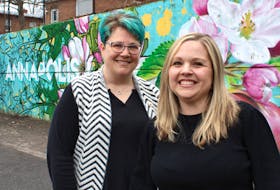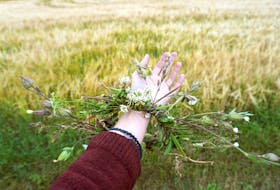'We are all treaty people'
"Chief Darlene Bernard of Lennox Island First Nation was 54 before she started to learn the history of her people. Now that she’s aware of it, she knows how important it will be for the future of Mi’kmaq-settler relations," writes the Guardian's Michael Robar.
Oct. 1 was Treaty Day in Miꞌkmaꞌki, a commemoration of the relationship between the Indigenous people and the Crown.
During the Prince Edward Island ceremonies, a new collaborative research project between the provincial government and the Mi’kmaq was announced. It's aimed at adapting the school curriculum to help all students learn Mi’kmaq history and language.
Bernard told Robar that she hopes people will grow to understand more, and fear less, the treaties First Nations are beginning to assert and to recognize the shared history between Indigenous and non-Indigenous peoples.
“While my Mi’kmaq ancestors signed this treaty for me, there was another party — your ancestors. And they signed it for you. It is important for us to know we are all treaty people, not just the Mi’kmaq," says Bernard.
Read the story for more about the project and to see how Treaty Day unfolded in P.E.I.

'Drowning in Plastic'
Oceana Canada campaign director Kim Elmslie refers to plastic as the "uninvited guest that has ...infiltrated our lives."
She has stats that back her up.
The ocean conservation charity released a report this week called “Drowning in Plastic”, which documents how Canada is contributing disproportionately to global plastic pollution.
While some governments in Atlantic Canada have banned single-use plastic bags, Elmslie says those bans are only a drop in the bucket in the battle to rid the world of plastics.
“It’s very hard as an individual to live a plastic-free life. And we’re starting to see a growing movement towards that, but it’s incredibly challenging because often the only choice that we have is something plastic,” she tells the Telegram's Juanita Mercer. “This problem hasn’t been around forever, so although plastics production is expected to grow, we have a real opportunity right now to stop that, and to change the future trajectory of plastic.”

Feeling helpless
A mom in Yarmouth County, N.S., says she's enternally grateful for a woman who unknowingly saved her son's life, but the experience has left her family worried about gaps in mental health services in the province.
Amber Gehue-LeBlanc says her teenage child Liam was on a walking trail one day in September and was intending to end his life.
When a woman walked by, Liam stopped, not wanting the woman to see what he was about to do.
A few minutes later, before anything happened, another person and the RCMP arrived on the scene. Liam was taken to the Yarmouth Regional Hospital.
While the family will be eternally grateful for that woman's presence, they're still worried for Liam and all the young people who need support and help from the province’s health-care system. The family feels more mental health supports and resources are needed in rural parts of the province.
“It’s always on your mind, the what-ifs," Gehue-LeBlanc tells SaltWire's Tina Comeau. “You have to be sent to the IWK and if the IWK has no beds than you have to be sent home and wait for your therapy appointment from the doctors. It’s so hard."

Down for the count?
Is fighting on its last legs in the Quebec Major Junior Hockey League?
The Chronicle Herald's Willy Palov thinks the practice is taking some mighty blows as of late.
The league approved new penalties on Wednesday that will see combatants receive an extra 10-minute misconduct to go with the standard five-minute major.
"That will make most guys think twice about dropping the gloves because nobody wants to spend a quarter of the game in the box," writes Palov in his latest column. "It's especially meaningful from a team perspective because no one will want to lose a key player for that long."
So what could the demise of "old-timey hockey" do to the league?









